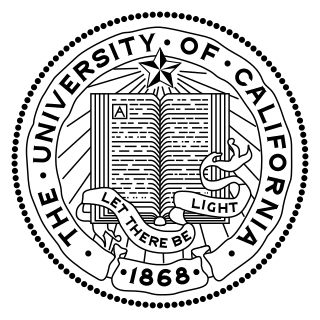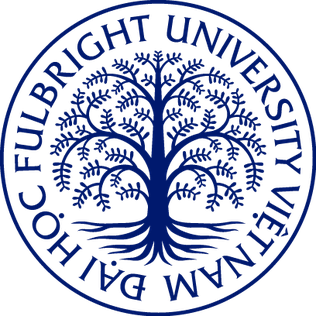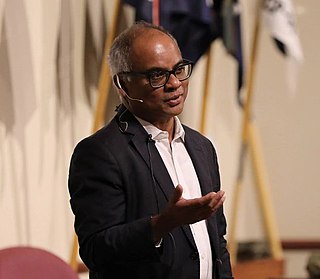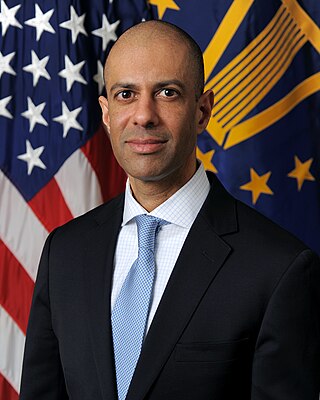
The University of California (UC) is a public land-grant research university system in the U.S. state of California. Headquartered in Oakland, the system is composed of its ten campuses at Berkeley, Davis, Irvine, Los Angeles, Merced, Riverside, San Diego, San Francisco, Santa Barbara, and Santa Cruz, along with numerous research centers and academic abroad centers. The system is the state's land-grant university. Major publications generally rank most UC campuses as being among the best universities in the world. In 1900, UC was one of the founders of the Association of American Universities and since the 1970s seven of its campuses, in addition to Berkeley, have been admitted to the association. Berkeley, Davis, Irvine, Los Angeles, Santa Barbara, and San Diego are considered Public Ivies, making California the state with the most universities in the nation to hold the title. UC campuses have large numbers of distinguished faculty in almost every academic discipline, with UC faculty and researchers having won 71 Nobel Prizes as of 2021.

The University of California, Los Angeles (UCLA) is a public land-grant research university in Los Angeles, California, United States. Its academic roots were established in 1881 as a normal school then known as the southern branch of the California State Normal School which later evolved into San José State University. The branch was transferred to the University of California to become the Southern Branch of the University of California in 1919, making it the second-oldest of the ten-campus University of California system after the University of California, Berkeley.

Jon Wolfsthal is an American security analyst currently serving as director of global risk at the Federation of American Scientists.

Graham Tillett Allison Jr. is an American political scientist and the Douglas Dillon Professor of Government at the John F. Kennedy School of Government at Harvard University. He is known for his contributions in the late 1960s and early 1970s to the bureaucratic analysis of decision making, especially during times of crisis. His book Remaking Foreign Policy: The Organizational Connection, co-written with Peter Szanton, was published in 1976 and influenced the foreign policy of the Carter administration. Since the 1970s, Allison has also been a leading analyst of U.S. national security and defense policy, with a special interest in nuclear weapons and terrorism.
The Daily Bruin is the student newspaper at the University of California, Los Angeles. It began publishing in 1919, the year UCLA was founded.

David E. Sanger is an American journalist who is the chief Washington correspondent for The New York Times, writing since 1982, covering foreign policy, globalization, nuclear proliferation, and the presidency.
Norman Abrams is an American academic, and Professor Emeritus at the UCLA School of Law. He succeeded Albert Carnesale on 30 June 2006 as interim-chancellor of the University of California, Los Angeles until his permanent replacement, Gene D. Block, took office on 1 August 2007.

Charles Edward Young, nicknamed Chuck Young, was an American university administrator and professor. A native of California, Young led the University of California, Los Angeles (UCLA) for 29 years as chancellor and the University of Florida for more than four years as president.

The President's Council of Advisors on Science and Technology (PCAST) is a council, chartered in each administration with a broad mandate to advise the president of the United States on science and technology. The current PCAST was established by Executive Order 13226 on September 30, 2001, by George W. Bush, was re-chartered by Barack Obama's April 21, 2010, Executive Order 13539, by Donald Trump's October 22, 2019, Executive Order 13895, and by Joe Biden's February 1, 2021, Executive Order 14007.

Student housing owned by the University of California, Los Angeles is governed by two separate departments: the Office of Residential Life, and Housing and Hospitality Services, and provides housing for both undergraduates and graduate students, on and off-campus.

The Robert and Renée Belfer Center for Science and International Affairs, also known as the Belfer Center, is a research center located at the Harvard Kennedy School at Harvard University in Cambridge, Massachusetts, in the United States.
Karen W. Arenson is an American retired journalist for The New York Times.

Janusz Kozinski, is a higher education leader, researcher, entrepreneur, and expert in sustainable energy systems and immune building concepts applied to public safety and security.

Fulbright University Vietnam (FUV) is a private nonprofit university currently located at the Crescent Plaza in Phú Mỹ Hưng in Hồ Chí Minh City, Vietnam. It is one of Vietnam's first private, nonprofit institutions of higher education. The FUV concept emerged from discussions convened by the Vietnam Program at the Harvard Kennedy School aimed at planning the next stage in the development of the Fulbright Economics Teaching Program (FETP), a center of public policy research and teaching in Hồ Chí Minh City.

Kamal Ahmad is a Bangladesh-born, now U.S. national, educator and social entrepreneur. He led the creation of the Asian University for Women located in Chittagong, Bangladesh in 2006.

Ashish Kumar Jha is an Indian-American general internist physician and academic who served as the White House COVID-19 response coordinator from 2022–2023. He has been Dean of the Brown University School of Public Health since 2020. Prior to Brown, he was the K.T. Li Professor of Global Health at Harvard T.H. Chan School of Public Health, faculty director of the Harvard Global Health Institute, and a Senior Advisor at Albright Stonebridge Group. Jha is recognized as one of the leading health policy scholars in the nation. Jha's role at Brown University focuses on improving the quality and cost of health care, and on the impact of public health policy.

Shane C. Campbell-Staton is an American evolutionary biologist. Since July 2021, he has been an assistant professor in the ecology and evolutionary biology department at Princeton, where he leads a research group. His work is on how phenotypes respond to human activity that affects the environment. He also hosts the podcast 'Biology of Superheroes' together with Arien Darby.

Marcelo Suárez-Orozco is the ninth permanent and current chancellor of the University of Massachusetts Boston, and is the first Latino to lead a campus in the Massachusetts public university system. He is the former inaugural UCLA Wasserman Dean at UCLA Graduate School of Education and Information Studies.

Vipin Narang is American political scientist serving as the acting assistant secretary of defense for space policy. He is Professor of Political Science at MIT. He is known for his research on nuclear weapons, conflict and proliferation. His research has shown that there are different nuclear weapons postures. These postures have implications for the likelihood of conflict between nuclear states, as well as bargaining outcomes in disputes.

The Eli and Edythe Broad Center of Regenerative Medicine and Stem Cell Research at UCLA, also known as the UCLA Broad Stem Cell Research Center, is a biomedical research center at the University of California, Los Angeles that focuses on driving groundbreaking stem cell research discoveries from the laboratory to the patient. Founded in 2005, the center is committed to a collaboration of scientific, academic and medical disciplines to revolutionize the treatment of disease through personalized cellular therapies and regenerative medicine. The center's more than 250 faculty members represent the UCLA professional schools as well as the College. Its work is guided by the UCLA's three institutional responsibilities: education, research and service.
















